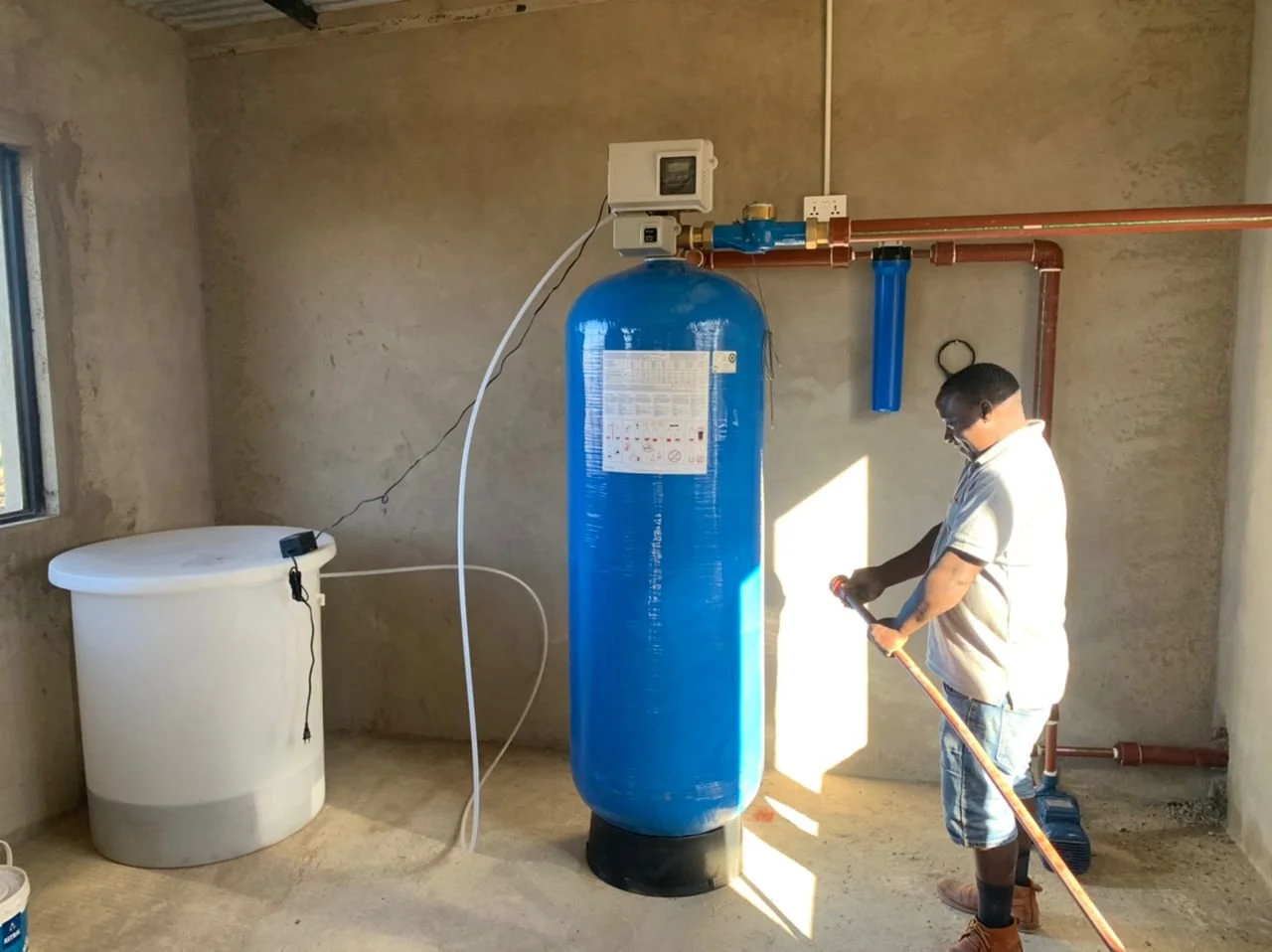Pentair Water Softening Plant
🌍✨ Exciting News from Greenlink Solar Tanzania! 💧🌿
As part of our commitment to providing holistic and sustainable solutions for communities, we are thrilled to announce that Greenlink Solar Tanzania is now offering water softening plant installations!
Water quality is crucial not just for health, but also for the longevity and efficiency of appliances and industrial equipment. Hard water can lead to numerous challenges such as scaling, reduced soap efficiency, and damage to appliances. Our state-of-the-art water softening plants combat these challenges, turning hard water into soft, improving its quality and ensuring its safe and efficient use.
Why choose Greenlink Solar Tanzania for your water softening needs?
🔹 Expertise: Leveraging our vast experience in sustainable solutions, we bring the same dedication and quality assurance to our water softening projects.
🔹 Quality Equipment: We use top-of-the-line components to ensure the effectiveness and longevity of the softening process. In this installation we used USA based company Pentair due to their Smart, Sustainable Water Solutions. This softening plant can treat 2500 liters/hour!
🔹 Sustainable Approach: Just like our solar solutions, our water softening plants are designed with the environment in mind, ensuring minimal waste and maximum efficiency.
Whether for residential, commercial, or industrial needs, trust Greenlink Solar Tanzania to bring you softer, cleaner water for a healthier community and environment. Hands down for Stuart Stern and Giliadi Damian for taking
Reach out to Dirk-Jan Verder for more information or to discuss your needs. Together, let's make a difference, one drop at a time. 💧🌍
#GreenlinkSolarTanzania #WaterSoftening #SustainableSolutions #CleanWater #CommunityFirst
#How Do Water Softening Plants Actually Work?
Water softening plants are designed to remove hard minerals, primarily calcium (Ca²⁺) and magnesium (Mg²⁺), from water, as these minerals can cause scaling and interfere with the effectiveness of soaps and detergents. The following is a brief overview of how water softening plants work:
Ion Exchange Process:
This is the most common method used in water softening plants. It involves passing hard water through a resin bed containing sodium or potassium ions.
The resin is made up of tiny beads that are saturated with sodium or potassium ions. As hard water passes through the resin, the calcium and magnesium ions in the water are attracted to the resin beads.
In a process called ion exchange, the resin beads release their sodium or potassium ions and "grab" the calcium and magnesium ions.
The water that emerges from the resin bed is now "softened" because it contains sodium or potassium instead of calcium and magnesium.
Regeneration Process:
Over time, the resin beads become saturated with calcium and magnesium ions and lose their effectiveness.
To restore the softening capacity of the resin, it needs to be regenerated. This involves flushing the resin bed with a brine solution (high concentration of salt). The high concentration of sodium or potassium ions in the brine displaces the calcium and magnesium ions on the resin beads.
After regeneration, the resin is rinsed to remove excess salt, and it's ready to soften water again.
Other Softening Methods:
While ion exchange is the most common method, there are alternative methods like reverse osmosis, which uses a membrane to remove calcium and magnesium, and template-assisted crystallization, which converts calcium and magnesium ions into harmless crystals that won't stick to surfaces.
Control Systems:
Modern water softening plants often come with advanced control systems that automatically manage the softening and regeneration processes. This ensures optimal performance and minimizes manual intervention.
By removing calcium and magnesium from the water, water softening plants help prevent scaling in pipes and appliances, increase the efficiency of soaps and detergents, and can extend the life of appliances like water heaters, dishwashers, and washing machines.
#Benefits of a Water Softening Plant:
Hard water levels can range from low to very high hard water. Homeowners with any level of hard water can face issues like prematurely broken water heaters and persistent scaling, spotty dishes and glassware, dingy and stiff laundry, itchy skin, and dull hair. With a Pentair Water Softener, you can reduce the havoc hard water can cause to your home and can save salt and water with our on-demand regeneration feature. When you insist on Pentair, you can expect better quality water from every tap in your home. Pentair recommends that you test your water hardness levels using our 16-Point Rapid Water Test to ensure the water softener is right for your home water. Additional features include:
Simple, electronic system for easier programming
Self-cleaning brine injector reduces maintenance
Only regenerates when needed, saving salt and water
Singular rotary disc seal means longer product life and less maintenance
Remote monitoring and low-salt level alert when paired with the Connected Salt Level Sensor and the Pentair Home App


